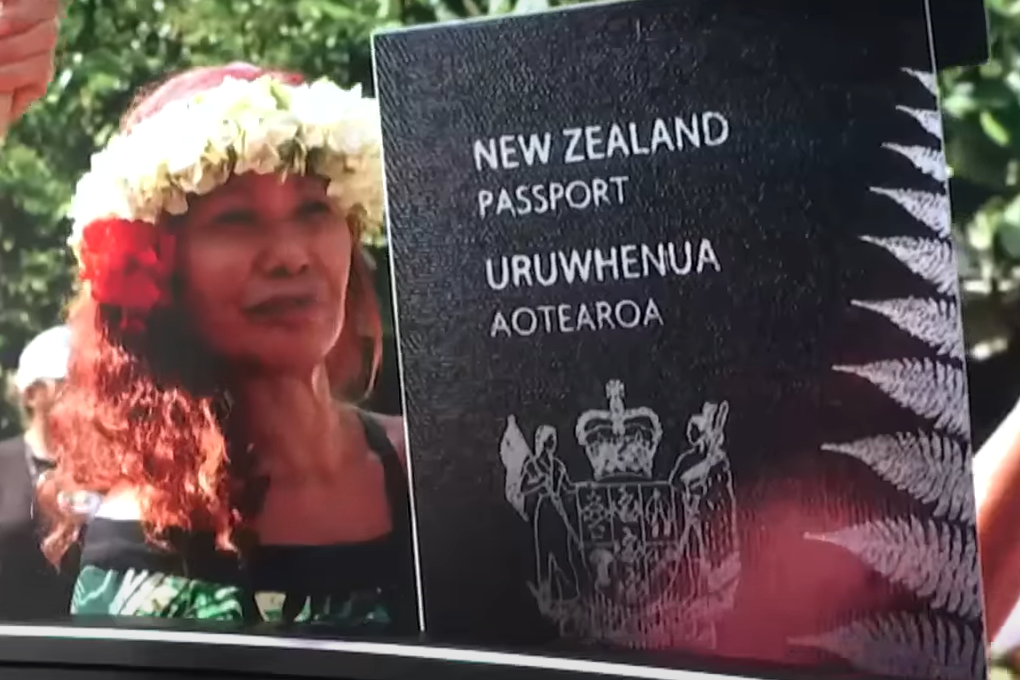Around 400 demonstrators, led by opposition parties, assembled outside the Cook Islands parliament in capital Avarua on Tuesday to protest against the prime minister’s recent deal with China, which has sparked a diplomatic row with New Zealand.
The Cook Islands recently unveiled the terms of its strategic partnership with China, covering areas like deep-sea mining and education, disaster relief, and cultural ties, though it does not specifically mention security. The deal, signed during a recent historic visit to China by prime minister Mark Brown, has sparked domestic protests and criticism over a lack of transparency.
On Tuesday, protesters held signs that read “Stay connected with New Zealand”, while others waved placards featuring the New Zealand passport in opposition to Mr Brown’s now-abandoned proposal for a separate Cook Islands passport, which would have required holders to renounce their New Zealand citizenship, as warned by New Zealand officials.
Opposition leader Tina Browne said: “We have no issue with our government seeking assistance. What we object to is risking our sovereignty and our relationship with New Zealand.”
Another opposition MP and Cook Islands United Party leader Teariki Heather told reporters that he was at the rally to show how much Cook Islanders value their relationship with New Zealand and the importance of the New Zealand passport.
He also offered an apology to the New Zealand government on behalf of the Cook Islands government, according to RNZ.
Several opposition leaders have expressed concerns about the potential impact of the strategic partnership with China on the Cook Islands’ relationship with New Zealand, which has constitutional ties with the nation.
The Cook Islands, located between Hawaii and New Zealand, is a self-governing territory with the ability to engage independently with the international community.
Upon returning from China on Monday, Mr Brown informed reporters that he would soon release the full details of the agreement and revealed that China would offer a one-time grant of approximately $4m to the Pacific nation of 25,000 people.
“Our ministries will be looking carefully at where they would look to allocate that funding as part of projects or initiatives that we might want to promote. And at this stage, it’s looking like primarily in the area of renewable energies,” Mr Brown told Cook Islands News.
The Cook Islands government defended the agreement, saying it complements existing relationships rather than replacing them.
“This does not replace our longstanding relationships with New Zealand, Australia, and others, but rather complements them, ensuring that we have a diversified portfolio of partnerships,” Mr Brown told the Cook Islands parliament on Monday.
“We are strengthening economic diplomacy through initiatives like our comprehensive strategic partnership with China,” he added.

New Zealand’s prime minister Christopher Luxon earlier said he expected transparency from the Cook Islands government. “Under our constitutional arrangements, we expect, you know, in matters of defence and security to be transparently discussed between partners. That’s all we’re asking for here.”
China is seeking to strengthen its diplomatic, economic, and military presence in the strategically significant Pacific region, aiming to challenge the influence of Australia, New Zealand, and the United States.
China’s state news agency Xinhua previously quoted Chinese premier Li Qiang as saying the agreement would “deepen political mutual trust and expand practical cooperation with the Cook Islands”.
While New Zealand has previously blocked the Cook Islands’ efforts to join the UN without full independence, the recent action plan indicates China’s support for expanding the Cook Islands’ participation in global organisations.
Additional reporting by agencies







